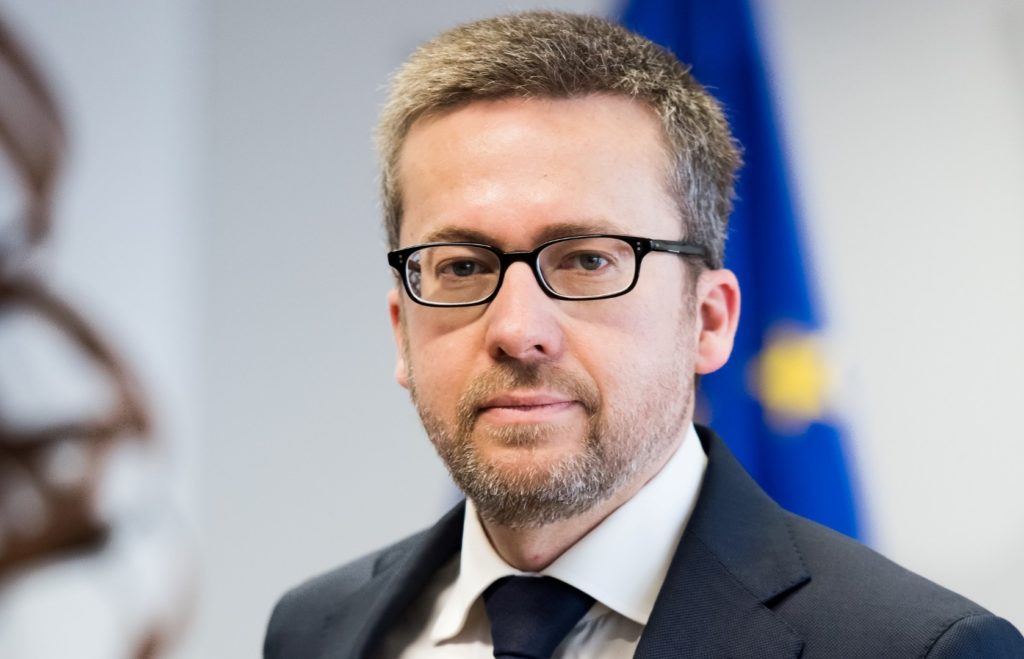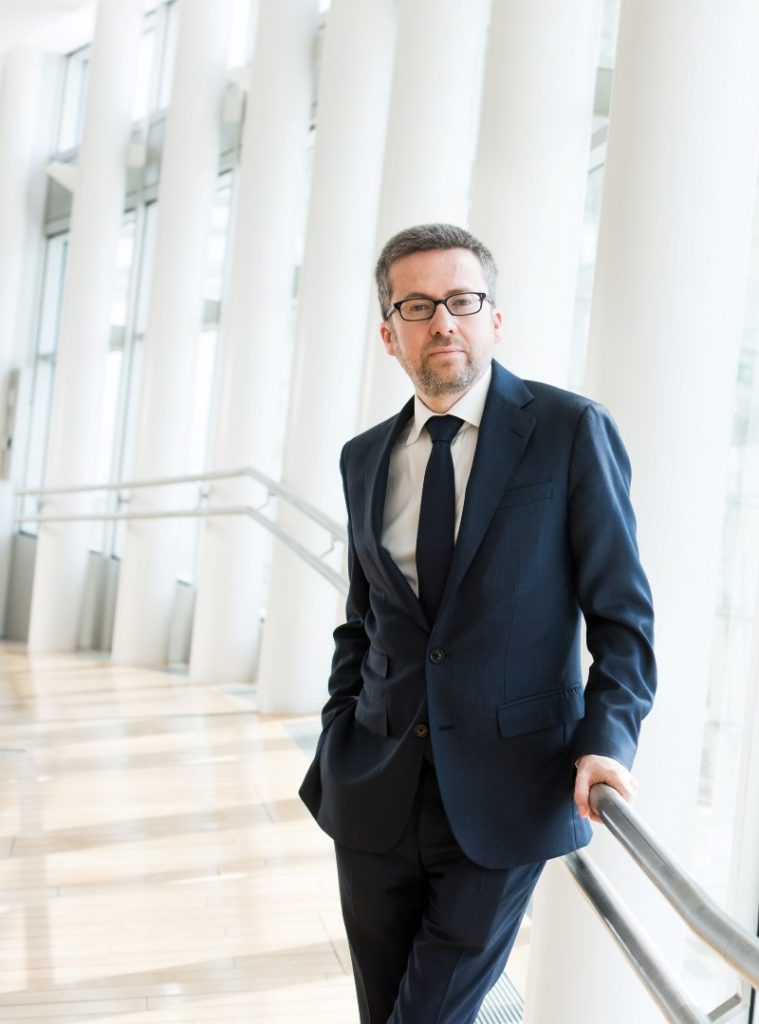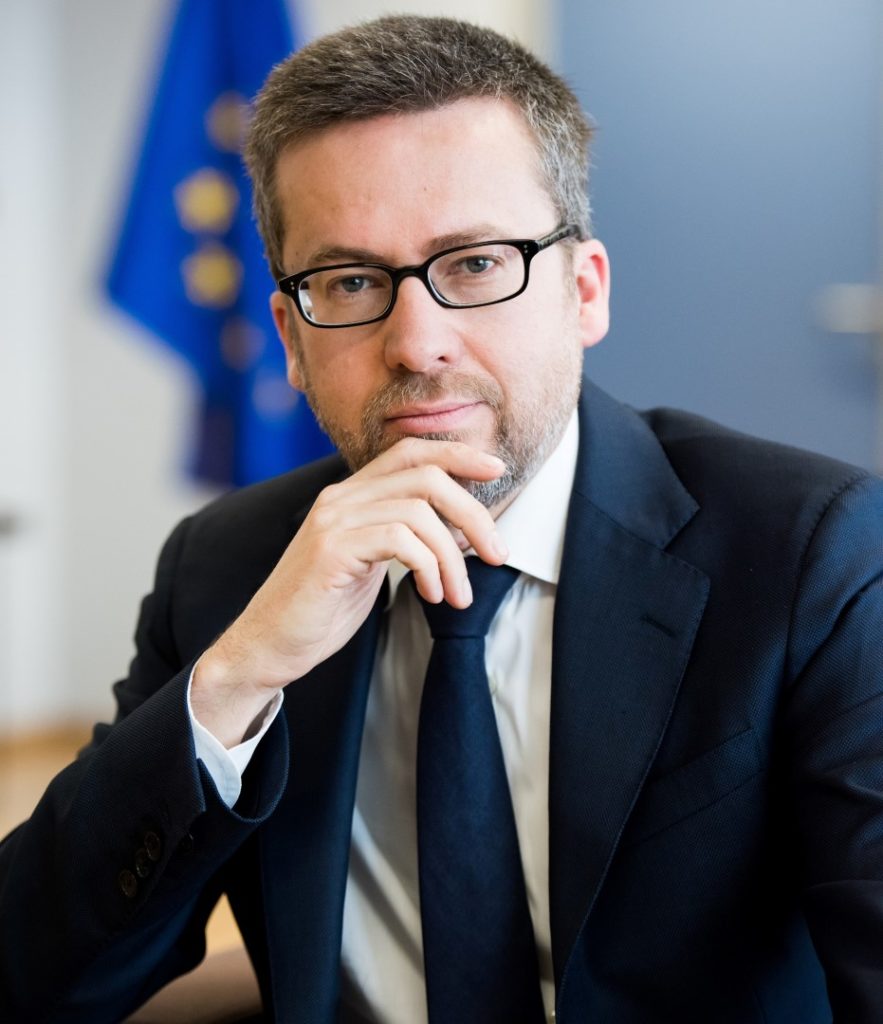
The future of the European Union is a “Blank Paper” and what will appear in it will be decided by the Member States. Last week, the president of the European Commission, Jean-Claude Juncker launched a debate that is intended to be wide-ranging, on the strategy that Europe should adopt in the coming years, to which the Sul Informação also joined.
Our newspaper was the only one in the Algarve and one of the few regional media in the country to be invited by the European Union for a joint interview with Carlos Moedas, European Commissioner for Research, Science and Innovation, who explained what is going on in what, in his view, are the major challenges facing the European Union.
Directors of regional newspapers - Why is it important to move forward with this White Paper now?
Carlos Moedas – We live in a critical moment. We had two very difficult years: the refugee crisis, the terrorist attacks, Brexit… And, since 2008, we have lived first a financial crisis, then an economic crisis, and today we still have growth below expectations and high unemployment.
Times of crisis require determined responses. And the mark of the European Union, in its 60 years of life that we celebrate these days, is the ability to adapt and overcome crises.
This is the time to make choices about what we want for our future. This document is a step in this process of change. It is a document that presents paths and the positive and negative consequences of each path.
DJR - Among the five scenarios presented, there are some that could restrict the free movement of citizens between Member States. Could this not be highly penalizing for the economy, namely for key sectors for Portugal, such as tourism?

CM – The five scenarios are valid and they all have advantages and disadvantages. I invite everyone to read this document and I'm sure you'll realize that setbacks or doing less scenarios have enormous costs to people's lives.
For example, are we going to settle for a single market for goods, without free movement of citizens within the EU?
Obviously, I am a staunch Europeanist and a product of the European project. I left Portugal at a very young age and went to several European countries, and, therefore, my personal choice is clear: the choice to think that Europe should be more united. The problems are global and we should do more together.
But who am I? I think citizens have to make their own choices.
DJR - Do you think it will be possible to launch a real debate on the future of the EU? Are the Member States not too far removed from the institutions?
CM – It is possible and necessary. Some European governments are sometimes tempted to be “away” from institutions when they invoke obligations and responsibilities for the common good, and “close” when what is at stake are benefits for their country. That's what President Juncker calls “part-time Europeans”.
This is what we have to fight. The EU is made up of all of us, it is not “Brussels” that can serve as a scapegoat when it suits. That is why the Commission is not trying, with this document, to impose a path.
On the contrary, it seeks to open a debate with everyone and for everyone. It tries to make this debate realistic, so that conscious choices are made about the benefits, but also the costs of each scenario. It is the countries and the people who have to choose the path.
DJR - Do you think citizens are mistaken or with too many expectations of the EU?
CM – There is often a mismatch between the expectations people have of Europe and what Europe can actually do. On the one hand, it is unfortunately too tempting to blame “Brussels” for decisions, sometimes unpopular, that Member States themselves have taken.
On the other hand, it is also sometimes difficult to clearly explain “who does what”, that is, the policies and actions that are the responsibility of the countries and those that come from the European Union.
One of the biggest difficulties in Europe today is for people to think that we can do things we can't. That we have the power to do and decide what we cannot.
President Juncker gives the very interesting example of youth unemployment. He said people expect Europe to solve youth unemployment.
Europe can have internship programmes, it can make investments that can stimulate job creation, but the EU only controls 0,3% of the budget in relation to social expenditure in Europe. 99,7% of that budget is decided by the countries, but people think it's Europe. And they blame Europe for a power that Europe does not have.
DJR - Do you admit that the disenchantment felt by some Europeans towards the EU project may lead, still this year or in 2018, to the possibility of other countries requesting a Brexit-type exit from the project? In this scenario of more negative electoral results, what can the European Commission do to solve the problem?
CM – In the presentation of the White Paper, President Jean-Claude Juncker underlined the importance of the European project not being hostage to national political agendas and electoral cycles.
However, we have to admit that we are also living in a difficult time in the history of the European Union, because, for the first time, a Member State has decided to leave.
And if, although it saddens me, it is a decision that I respect, it is also a decision that forces us to reflect on the direction Europe should take with 27 Member States.
Brexit's reasons are sad and deep. Several British governments, regardless of party color, used Brussels as a scapegoat for all evil.
If we add to this problems in communicating the advantages of the European project, the lack of exemption in a large part of the English press, and other elements, we have the condiments of a crisis.
And that's the real problem of what we live in today. People forget that the European Union is made up of countries and it is these countries that make these choices.
This is the purpose of this White Paper on the future of Europe: to offer different scenarios for European countries and citizens so that they can choose consciously and aware of the consequences.
Fortunately, in general, the Portuguese have always been defenders of the European project. But we have to be careful for the future, because we are already seeing that some people are starting to ask "is it worth it?" And that alone is worrying.
DJR- Given Europe's loss of demographic and economic influence, is there any fear of Europe's financial subjugation to the power of the US, China and major Asian giants together?

CM – We have to understand the reality we are in, of a Europe that represents less and less in the world. Note that Europe 20 years ago represented 30% of the world's GDP and today only 20%. At the same time, China was 2% and today it is 17%. So, 20 years from now, a country like Germany won't even be in the G7.
Faced with this scenario, we have to choose and we have to think: what are we going to be 20 years from now? So, for me, the only valid option is to stick together because the problems are global, we can't solve them alone.
DJR - Do you think it is possible to revolutionize the future of the Union within the framework of the current institutions or do you foresee changes in this area?
CM – The document says, at a certain point, that form must follow function, that is, first we have to choose what we want for Europe and then we will certainly know how to make the necessary institutional reforms. The strength of Europe is precisely its “adaptability”.
60 years ago, there were 6 countries and we grew to 28, with advances and retreats. But the common brand is adaptability. Robust institutions are those that know how to adapt. Having said that, I am also aware that, more important than institutional issues, is being increasingly able to improve the daily lives of citizens.
DJR - With the presentation of the five possible scenarios for the EU in 2025, how is it expected to achieve a broad, open and in-depth debate, involving the grassroots – ie the citizens – while admitting that there is a huge lack of knowledge about the what the European institutions do and a great lack of memory about what Europe has meant for each of the countries in the last six decades? What instruments will be made available to citizens to be able to pronounce on the scenarios that are placed and what influence might they have on the final choice?
CM – I think this initiative is an example of how the European Commission wants to do policy differently. Politics before was often done behind closed doors, the leaders met, decided and imposed the path. Nowadays, you can't do politics like that.
Politics has to be done, not for people, but with people. Above all, we have to give them all the information so that they can make informed decisions.
What we did with the presentation of the White Paper was exactly that: open the debate to everyone, presenting the various scenarios and the consequences of each scenario. And we present them to the European Parliament, the home of deputies directly elected by Europeans.
We have many channels already open for citizens to participate, but what we really want is to encourage people to be more aware of the various options. This choice, and its consequences, cannot be taken by the European Commission, but by each of the 500 million EU citizens.
The debate has to be held in countries, with people. It will not be the Commission telling people what to think.


















Comments